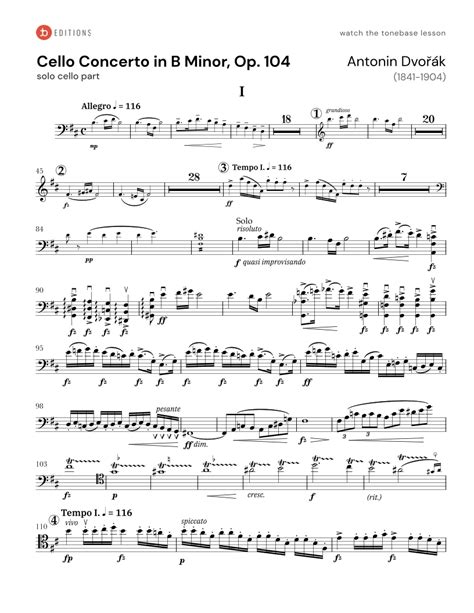The Dvorak Cello Concerto, a crowning jewel of classical music, is a work of profound emotional depth and technical complexity. Composed by Antonin Dvorak in 1895, during his residency in the United States, this concerto is a testament to the composer’s masterful understanding of the human experience. It’s a symphonic exploration of love, loss, and longing, with the cello serving as a poignant voice that echoes the deepest recesses of the human heart.
Historical Context: A Composer’s Odyssey To truly appreciate the emotional richness of the Dvorak Cello Concerto, it’s essential to understand the historical context in which it was written. Dvorak, a Czech composer, was invited to become the director of the National Conservatory of Music in New York City in 1892. This move marked a significant turning point in his life, as he was exposed to a new world of musical influences, including African-American spirituals and Native American music. The concerto, dedicated to his friend Hanus Wihan, is a reflection of Dvorak’s personal struggles and triumphs during this period, as he grappled with the challenges of a new environment and the longing for his homeland.
The Concerto’s Structure: A Narrative of Emotional Arcs The Dvorak Cello Concerto is structured into three movements, each with its unique character and emotional landscape. The first movement, marked by a haunting melody, sets the tone for the entire work. It’s a gentle, yet powerful, introduction to the cello’s vocal quality, as it navigates the intricacies of the orchestra. The second movement, a poignant adagio, is a masterclass in expressive restraint, with the cello singing a melody of heartbreaking simplicity. The final movement, a vibrant allegro, is a jubilant celebration of life, with the cello and orchestra engaging in a joyful dialogue.
The Dvorak Cello Concerto is a work of remarkable emotional intimacy, with the cello serving as a confidant to the composer's innermost thoughts and feelings. It's a testament to the universal power of music to express the depths of human emotion, transcending the boundaries of language and culture.
Technical Mastery: The Cello’s Vocal Quality One of the concerto’s most striking aspects is its technical mastery. Dvorak, a skilled viola player himself, was deeply aware of the cello’s unique characteristics and pushed the instrument to its limits. The concerto demands a level of technical proficiency that few cellists can match, with intricate fingerwork, soaring melodies, and nuanced expressiveness. The cello’s vocal quality, with its mellow timbre and expressive range, is perfectly suited to the concerto’s emotional landscape, conjuring a sense of vulnerability and longing.
Interpretations and Performances: A Legacy of Emotional Resonance The Dvorak Cello Concerto has been interpreted and performed by countless cellists over the years, each bringing their unique perspective to the work. From the iconic recordings of Pablo Casals to the more recent interpretations of Yo-Yo Ma and Jacqueline du Pré, the concerto has been a staple of the classical music repertoire. Its emotional resonance has captivated audiences worldwide, with its themes of love, loss, and longing continuing to inspire and console listeners to this day.
What inspired Dvorak to write the Cello Concerto?
+Dvorak was inspired by his friendship with Hanus Wihan, a Czech cellist, and his experiences during his residency in the United States. The concerto is a reflection of his personal struggles and triumphs during this period.
What are the key features of the Dvorak Cello Concerto's structure?
+The concerto is structured into three movements, each with its unique character and emotional landscape. The first movement sets the tone, the second movement is a poignant adagio, and the final movement is a vibrant allegro.
Why is the Dvorak Cello Concerto considered a technically demanding work?
+The concerto demands a level of technical proficiency that few cellists can match, with intricate fingerwork, soaring melodies, and nuanced expressiveness. The cello's vocal quality is perfectly suited to the concerto's emotional landscape.
Conclusion: A Timeless Masterpiece The Dvorak Cello Concerto is a timeless masterpiece that continues to captivate audiences with its emotional depth and technical complexity. Its themes of love, loss, and longing are universally relatable, making it a work that transcends the boundaries of language and culture. As a testament to the power of music to express the human experience, the concerto remains a cornerstone of classical music, inspiring and consoling listeners to this day. Whether you’re a seasoned music lover or a newcomer to the world of classical music, the Dvorak Cello Concerto is a work that will leave you breathless and inspired, its emotional resonance lingering long after the final notes have faded away.



